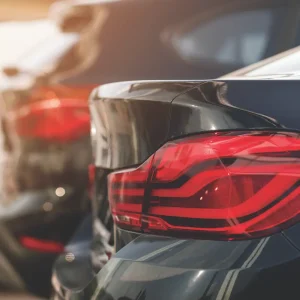
It would have been strange to find a car manufacturer of any size without a dedicated UK fleet boss at the start of the decade. Each brand had its own head of fleet sales – its big cheese, heading up the business end of the business.
These roles still exist, but they are rarer than they used to be. In early 2020, just before the pandemic struck, 20 manufacturers had a fleet boss dedicated either to one brand or to no more than two sister brands (e.g. BMW/Mini or Jaguar-Land Rover) according to Auto Retail Network’s Networks Report, which includes a list of senior OEM executives across 34 brands.
The 2023 version of the same report showed 13 remaining fleet bosses, and two more have since left their roles with, we believe, no dedicated replacement. A 45% drop in four years.
The trend is most acute among, but not exclusive to, large multi-brand manufacturer groups. Typically, the role has been spread across multiple brands, combined with another role, or removed completely.
It is important to remember that at least three of the past four years were the weirdest and the most disruptive in living memory. The pandemic goes without saying and the subsequent supply shortages – exacerbated by the war in Ukraine – were particularly hard on the automotive industry. Factor in the general drive towards consolidation and joint projects, and a new agency retail model emerging, all against the backdrop of migrating from internal combustion power to electric, and it is not hard to see why things have changed inside manufacturer HQs.
That has not been seen as a welcome change for fleets, though, and operators are very much aware of the diminishing number of contacts at the companies from which they buy their vehicles – and not only at senior executive level.
“You used to have an [OEM] account manager ring you at least once a month,” says Lorna McAtear, deputy chair at the AFP, “these days, if I’ve had an account manager ring me at all, it’s because I’ve actually bought something. That’s the level of difference we are now facing. And in fact, you only talk to your account manager when you ring them and chase them down.”
McAtear believes the reduction is largely down to restructuring in the wake of Covid and consolidation among large groups, and that smaller fleets are feeling it the most.
“The bigger fleets stand more chance of being able to get hold of someone; the smaller fleets don’t [and] a lot of it is now relying very clearly on previous relationships. Now, if your previous relationship happens to be with somebody that’s been furloughed, left, changed jobs – whatever it is – you are really, really going to struggle to find out who your next contact is.”
The retail sector is more profitable for manufacturers than fleet, so took precedence when there were fewer vehicles to sell during the chip shortage. While this was not the OEMs’ fault, it meant fleet took a back seat, supporting anecdotes Business Car has reported about major rental companies shopping at auctions for used vehicles, because they just could not get new ones.
However, UK retail sales were flat last year, while fleet registrations rose by 38.7%, which illustrates how dependent manufacturers are on the sector for volume and, currently, growth.
“Fleet is famine or feast [for manufacturers],” says Philip Nothard Cox Automotive’s insight director, “it’s ‘we need you now, so here’s all that product; what do you mean you can’t take it?’ or ‘actually, we don’t want to sell you any product; we’ll keep it ourselves’. They are quite notoriously bad at forecasting their volumes.
“But at the same time, if you look at the OEMs’ challenges, they’re trying to work out this transition to the new retail model [agency], however that looks. They’re trying to manage the ZEV mandate against the global Cafe targets and things like that.”
McAtear says fleets were sympathetic to manufacturers during the pandemic and the worst of the supply shortages, but patience has waned for those that have not since addressed their customer service.
“For the first year or two, there was sympathy for the OEMs. It was like, ‘we get it, it’s been tough,’. then, when the same excuses appeared to come through, when others had started to sort it out, that’s when the sympathy kind of ran out, and now we just want it fixed. When you give some of these manufacturers the opportunity to come and talk to you and they still don’t do it, or they promise the earth and then fail again, that’s when you get frustrated as a fleet manager, and you start to walk. We’re a very patient bunch, a very resilient bunch – to a point.”
Walking often involves following good account managers, according to McAtear, who sometimes pop up at other businesses and make sure their fleet customers know it.
“If you get a hold of a good account manager, you follow them and they will follow you,” she adds, “they will actually say, ‘I’ve moved from here to here; here’s my product’. I don’t think some of the OEMs have realised that’s what’s happening [and] it’s happening more now than it’s ever happened before.”
We put these concerns to three major manufacturers at which we identified what we believed to be reductions in senior fleet sales staff and/or mergers with other roles. According to the Networks Report, each of the Volkswagen Group’s major brands had a head of fleet sales in 2020. In the 2023 edition, Seat/Cupra and Skoda did not list one, while Audi and VW listed a “head of direct sales”. We included these two in our initial fleet boss total in the third paragraph but depending on the definition of direct sales – and what actually happens behind the scenes – such a title could refer to agency sales, where retail vehicles are sold directly by the manufacturer, responsibility for which may be shared with fleet.
The VW Group acknowledged our query but did not provide an official comment ahead of our deadline.
Mercedes’ fleet boss, Tom Brennan – formerly Audi’s head of fleet – left the business in October 2023. As we understand it, Thomas Corstjens has since assumed responsibility for fleet sales, alongside his existing role as head of used cars and remarketing (fleet was not mentioned in his job title on LinkedIn at the time of writing).
A spokesperson for Mercedes said: “While we wouldn’t want to respond to individual opinions, from our perspective, the size of the MBUK fleet team is the same now as it was pre-pandemic and there’s a dedicated fleet customer hub for anyone who wants to speak to us direct.”
In 2020, FCA and PSA each had a group head of fleet, so in this respect, multi-brand fleet bosses are not new. However, Vauxhall had long-serving fleet boss, now MD, James Taylor. In 2023, two years after Stellantis formed, B2B director, Nick Richards, was responsible for fleet sales for eight passenger car brands.
In February this year, a Stellantis spokesperson told Business Car it would appoint five dedicated heads of fleet throughout March and April – one each for Vauxhall, Peugeot, and Citroen, one for Fiat and Jeep, and another for DS and Alfa Romeo.
We also received the following statement, credited to Eurig Druce, Stellantis’s VP for sales: “Our B2B customers are at the forefront of our mind. Over the past few months, we have been changing our management structure to ensure that we provide the best possible relations with these customers. We are appointing dedicated heads of fleet for each of our brands and, for those customers who want to continue to interact with us as a group, maintain a group contact for major channels. In this period of transition, we recognise that there has been some disruption but are confident that our new structure will provide the best possible service to our customers.”
It is worth mentioning the nine manufacturers of the original 34 we examined that have maintained a single fleet boss for no more than two sister brands throughout this decade. Six of those – Ford, Hyundai, JLR, Kia, Mazda, and MG – had the exact same member of staff heading fleet sales between 2020 and February 2024.
According to McAtear, the issues that have been raised in this article have been felt across the industry, and many fleets have common experiences.
“What we find is some of us may have a slightly better experience with one manufacturer than someone else, but that’s because of a long-term relationship. Unanimously, whenever we get our AFP mega fleet committee together and some of the other committees, it’s all very similar rumbles.
“Senior management within a lot of these companies appears to have disappeared. We just can’t get hold of the right people and the frequency of contact is shockingly low.”
She is quick to praise the “good” OEMs, singling out BMW as one that “never stopped engaging,” but cautions those that have dropped the ball to be wary of the swathes of new entrants vying for fleets’ business, many of which are keen to crack customer service.
“Some manufacturers are still good – it’s not all manufacturers – [but] there are new players coming into the market [and] they are much more engaging than a lot of the existing ones.”





